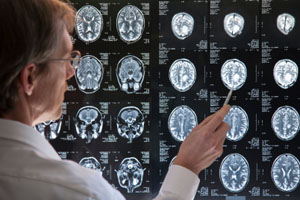Experimental Brain Therapy and Antidepressant Combo Could Help Depression
Author: Hisaho Blair - 3/11/2013

iStock
A study published in the Journal of American Medicine Psychiatry in February suggests that a new experimental form of brain stimulation may be an effective tool in fighting depression. In the study, Dr. Felipe Fregni and his team at Harvard Medical School, along with colleagues in Brazil, looked at the effects of combining transcranial direct current stimulation (tDCS) with antidepressant medication to treat depression. The results show that most subjects treated with the combination of tDCS and the medication sertralin (Zoloft) showed a significant decrease in depression symptoms than with either treatment alone.
Brain stimulation therapies have been used for decades to treat depression and other mental illnesses. Electroconvulsive therapy (ECT) is most often used for severe, treatment-resistant depression. It has been depicted negatively in popular culture, but ECT has become much safer in recent years. Still, it needs to be conducted under anesthesia and can have side effects such as memory loss.
Although ECT and tDCS both use electricity to stimulate the brain, tDCS uses only 1/400th the current of ECT. ECT is performed under anesthesia and lasts only a few seconds; tDCS is administered through two electrodes placed on a patient’s temples while fully conscious and takes 20 to 30 minutes. The tDCS device is small and portable and operates on 9-volt batteries. Currently, there are no tDCS devices that are approved by the U.S. Food and Drug Administration (FDA) for use on the brain.
Another type of brain stimulation that does have approval of the FDA is transcranial magnetic stimulation (TMS). It was approved in 2008 for treatment of depression that is not responsive to medication. TMS uses a magnetic coil held above the scalp to induce electrical currents in the brain. TMS can target specific areas of the brain compared to ECT. However, compared to tDCS, it is more expensive and has a stronger effect, which may carry a stronger risk for seizure. It is also harder to conduct double-blind studies with TMS, as it is harder to “sham,” or fake its sounds and effects.
In their experimental study, Fregni and colleagues looked at 120 people in Brazil with depression that had not previously been treated with medication. The subjects were divided into four groups: Group 1 received both tDCS and 50mg of Zoloft; Group 2 received tDCS and a placebo medication; Group 3 received sham stimulation and 50mg Zoloft; and Group 4 received sham stimulation and a placebo medication.
Depression was assessed using the Montgomery-Asberg Depression Rating Scale, with a higher score indicating more severe depression. On a scale of 0 to 60, the subjects averaged a score of 30 to 31 before the study. After six weeks, subjects in Group 1 who received both tDCS and medication showed a significant decrease in their depression score compared to those in Group 4 (average score of 13 vs. 25), as well as to those who received medication alone (average score 21) and brain stimulation alone (average score 19). The difference between Groups 2 and 3 was not considered statistically significant.
The most often reported side effect of tDCS was skin redness around the temple area. There appeared to be no effect on cognition. However, there is the possibility of increased manic episodes with this therapy. Seven subjects experienced manic episodes during the course of the study—five of them in the combined treatment group—although researchers had screened out those with bipolar disorder.
The implications of this study are promising. “I think tDCS could be tried before ECT,” the study’s author Dr. Andre R. Brunoni told the New York Times. He also thinks tDCS could be used to treat individuals who cannot use drugs, such as those who are pregnant or those who haven’t responded to the drugs.
However, Dr. Philip Janicak of Rush University Medical Center in Chicago who was not involved in the study told Reuters Health that “the question is still out” as to whether tDCS can help people with depression.
“tDCS could very well be an effective treatment,” he said. But, “at this point I would never recommend it, based on the evidence that's currently available.”